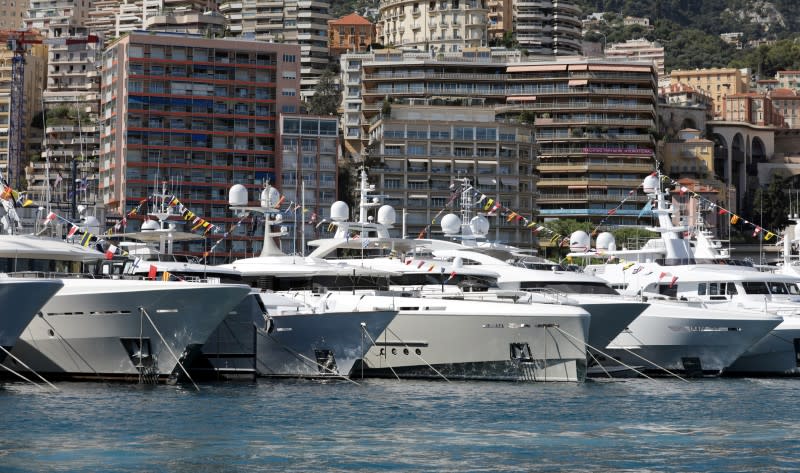Crowded Monaco reclaims land to build more luxury flats with sea view
By Michel Bernouin
MONACO (Reuters) - Tiny Monaco is set to grow by six hectares under plans to reclaim land from the Mediterranean and build more luxury apartments and posh boutiques with fine sea views.
The second smallest state in the world after the Vatican, Monaco is also home to the world's most expensive property market and the project is intended to relieve some pressure on housing in the principality, which is surrounded by France.
The land reclamation programme, due to cost 2 billion euros ($2.23 billion), involves the construction of 60,000 square metres of luxury accommodation, 3,000 square metres of retail space and a new private port. It is due for completion in 2021.
French industrial group Bouygues <BOUY.PA> has built a wall 500 metres (1,640 feet) long out of 17 concrete chambers, pumping out the seawater and using 450,000 cubic metres of sand imported from Sicily to fill in the gap.
The next stage, due to last until October 2020, will involve the stabilisation of the ground using a technique known as 'jet grouting' before the building work can begin.
The Monegasque official in charge of overseeing the work, Jean-Luc Nguyen, said construction on such a scale necessarily had an impact on the local animal and plant life but that they had tried to keep it to a minimum.
"Of course, creating a six hectare-platform in the sea means you have to remove some of the natural habitat, so you have to accept that. What we tried to do is create within the new infrastructure ways for the flora and fauna to return as quickly as possible," he told Reuters in December.
According to global real estate company Savills, Monaco remained the most expensive property market in the world in 2018. Average residential prices increased by 18 percent to 48,800 euros per square metre, 10 percent higher than Hong Kong and 96 percent higher than New York.
(Reporting by Reuters Television; Writing by Matthias Blamont; Editing by Gareth Jones)

 Yahoo Finance
Yahoo Finance 

